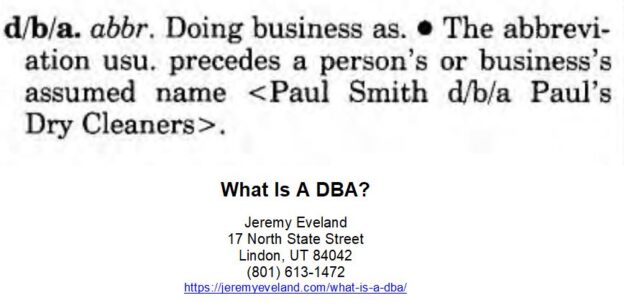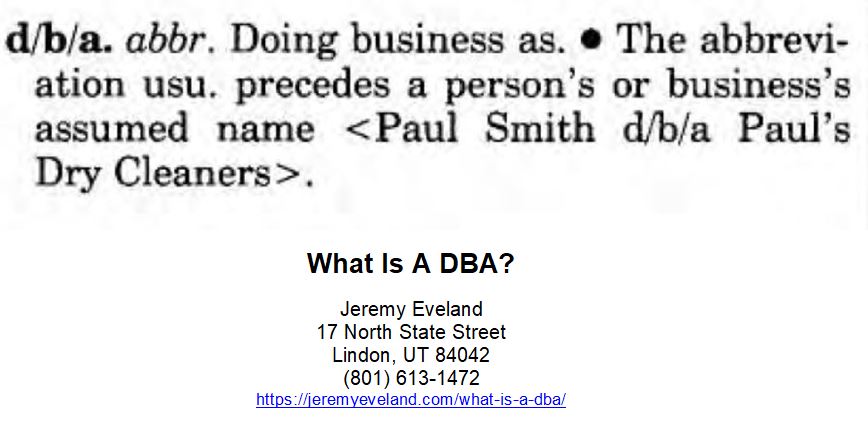Business Law and Intellectual Property
-
Trademarks, Corporations, and More
- Introduction
- What to Do When Your Intellectual Property is Infringed Upon
- How to File for a Trademark and What to Expect During the Process
- Why Businesses Need to File for Copyrights
- Business Trademarks with the United States Patent Office
- The Difference Between Patents Copyrights and Trademarks
- How to Protect Your Business Assets with Intellectual Property Rights
- Understanding the Basics of Intellectual Property Law
- Protecting Your Business and IP Rights
- Q&A
“Protecting Your Ideas and Assets: Business Law and Intellectual Property Solutions”
Introduction
Business Law and Intellectual Property are two important areas of law that are essential for businesses to understand and comply with. Business Law covers a wide range of topics, including contracts, torts, employment law, and corporate law. Intellectual Property Law protects the rights of creators and inventors to their creations and inventions, such as copyrights, trademarks, and patents. Both of these areas of law are important for businesses to understand and comply with in order to protect their interests and ensure their success.
What to Do When Your Intellectual Property is Infringed Upon
When your intellectual property is infringed upon, it is important to take action quickly to protect your rights. Here are some steps you can take to protect your intellectual property:
1. Document the Infringement: Gather evidence of the infringement, such as screenshots, copies of the infringing material, and any other relevant information.
2. Contact the Infringer: Contact the person or company responsible for the infringement and explain the situation. Ask them to stop using your intellectual property and provide evidence of the infringement.
3. Send a Cease and Desist Letter: If the infringer does not respond to your initial contact, you may need to send a cease and desist letter. This letter should explain the infringement and demand that the infringer stop using your intellectual property.
4. Consider Legal Action: If the infringer does not comply with your cease and desist letter, you may need to take legal action. This could include filing a lawsuit or seeking an injunction to stop the infringement.
5. Monitor the Infringement: Even after taking action, it is important to monitor the infringement to ensure that it does not continue.
By taking these steps, you can protect your intellectual property and ensure that your rights are respected.
How to File for a Trademark and What to Expect During the Process
Filing for a trademark is a complex process that requires a thorough understanding of the law and the ability to navigate the legal system. The process begins with a trademark search to ensure that the mark is not already in use. Once the search is complete, the applicant must file an application with the United States Patent and Trademark Office (USPTO).
The application must include a description of the mark, the goods or services associated with the mark, and the applicant’s contact information. The application must also include a fee, which varies depending on the type of mark and the number of classes of goods or services associated with the mark.
Once the application is filed, the USPTO will review it to ensure that it meets all the requirements. If the application is approved, the mark will be published in the Official Gazette, a publication of the USPTO. This allows any interested parties to oppose the registration of the mark. If no opposition is filed, the mark will be registered and the applicant will receive a certificate of registration.
The entire process can take several months, depending on the complexity of the application and the number of oppositions filed. It is important to note that the registration of a trademark does not guarantee exclusive rights to the mark. The applicant must still take steps to protect the mark from infringement.
Filing for a trademark is a complex process, but with the right guidance and preparation, it can be a successful endeavor. Understanding the process and the requirements is essential to ensure that the application is successful.
Why Businesses Need to File for Copyrights
Businesses need to file for copyrights to protect their intellectual property from being used without permission. A copyright is a form of legal protection that grants the creator of an original work exclusive rights to the use and distribution of that work. This includes the right to reproduce, distribute, display, and perform the work, as well as the right to create derivative works.
By filing for a copyright, businesses can ensure that their work is protected from unauthorized use. This is especially important for businesses that rely on their intellectual property for their livelihood. Without a copyright, anyone could use the work without permission, which could lead to lost profits and potential legal action.
In addition to protecting the work from unauthorized use, a copyright also provides businesses with the ability to monetize their work. By registering a copyright, businesses can license their work to others, allowing them to generate revenue from their intellectual property. This can be a great way for businesses to generate additional income and expand their reach.
Finally, filing for a copyright can also help businesses protect their brand. By registering a copyright, businesses can ensure that their work is associated with their brand and that any unauthorized use of the work is quickly identified and addressed. This can help businesses maintain their reputation and protect their brand from potential damage.
Overall, filing for a copyright is an important step for businesses that rely on their intellectual property. By registering a copyright, businesses can protect their work from unauthorized use, monetize their work, and protect their brand.
Business Trademarks with the United States Patent Office
Trademarks are an important part of any business. They are used to identify and distinguish a company’s goods and services from those of its competitors. The United States Patent and Trademark Office (USPTO) is the federal agency responsible for registering trademarks.
The USPTO offers two types of trademark registration: Principal Register and Supplemental Register. A trademark registered on the Principal Register is given the highest level of protection under federal law. It is also eligible for use in foreign countries. A trademark registered on the Supplemental Register is not eligible for use in foreign countries, but it does provide some protection under federal law.
To register a trademark with the USPTO, an applicant must submit an application that includes a description of the mark, a drawing of the mark, and a list of the goods and services associated with the mark. The application must also include a statement of the applicant’s intent to use the mark in commerce.
Once the application is submitted, the USPTO will review it to determine if the mark is eligible for registration. If the mark is eligible, the USPTO will publish it in the Official Gazette, a weekly publication that lists all newly registered trademarks. After publication, any party who believes they may be damaged by the registration of the mark may file an opposition to the registration.
If no opposition is filed, or if the opposition is unsuccessful, the USPTO will issue a certificate of registration. This certificate serves as proof that the mark is registered and provides the owner with certain legal rights.
Trademark registration with the USPTO is an important step for any business. It provides protection for the company’s goods and services and helps to ensure that its brand is not infringed upon by competitors.
The Difference Between Patents Copyrights and Trademarks
Patents, copyrights, and trademarks are all forms of intellectual property protection. Each type of protection serves a different purpose and offers different levels of protection.
Patents are a form of intellectual property protection that grants the inventor exclusive rights to make, use, and sell an invention. Patents are granted by the United States Patent and Trademark Office (USPTO) and are valid for a limited period of time, usually 20 years. In order to obtain a patent, the invention must be novel, useful, and non-obvious.
Copyrights are a form of intellectual property protection that grants the creator of an original work exclusive rights to reproduce, distribute, and publicly display the work. Copyrights are granted by the United States Copyright Office and are valid for the life of the author plus 70 years.
Trademarks are a form of intellectual property protection that grants the owner exclusive rights to use a distinctive mark, phrase, or logo to identify their goods or services. Trademarks are granted by the USPTO and are valid as long as the mark is used in commerce.
In summary, patents, copyrights, and trademarks are all forms of intellectual property protection. Patents protect inventions, copyrights protect original works, and trademarks protect distinctive marks, phrases, and logos. Each type of protection offers different levels of protection and is granted by different government agencies.
How to Protect Your Business Assets with Intellectual Property Rights
Intellectual property rights are an important tool for protecting the assets of a business. These rights provide legal protection for the products, services, and ideas that a business creates. By understanding the different types of intellectual property rights and how to use them, businesses can ensure that their assets are protected.
The first type of intellectual property right is copyright. Copyright protects original works of authorship, such as books, music, and software. Copyright protection is automatic and lasts for the life of the author plus 70 years. To protect a work with copyright, businesses should include a copyright notice on the work and register the work with the U.S. Copyright Office.
The second type of intellectual property right is trademark. Trademarks protect words, symbols, and designs that identify a business’s products or services. Trademarks can be registered with the U.S. Patent and Trademark Office. To protect a trademark, businesses should use the trademark symbol (™) when referring to the trademarked product or service.
The third type of intellectual property right is patent. Patents protect inventions and processes. Patents can be registered with the U.S. Patent and Trademark Office. To protect a patent, businesses should include a patent notice on the invention or process and register the patent with the U.S. Patent and Trademark Office.
Finally, trade secrets are a type of intellectual property right that protect confidential information. Trade secrets can include formulas, recipes, customer lists, and other information that is not generally known. To protect a trade secret, businesses should take steps to keep the information confidential, such as limiting access to the information and requiring employees to sign non-disclosure agreements.
By understanding the different types of intellectual property rights and how to use them, businesses can ensure that their assets are protected. By taking the necessary steps to protect their intellectual property, businesses can ensure that their products, services, and ideas remain secure.
Understanding the Basics of Intellectual Property Law
Intellectual property law is a complex and ever-evolving area of law that is designed to protect the rights of creators and inventors. It is important for individuals and businesses to understand the basics of intellectual property law in order to protect their creations and inventions.
Intellectual property law is divided into four main categories: copyright, trademark, patent, and trade secret. Each of these categories has its own set of rules and regulations that must be followed in order to protect the rights of the creator or inventor.
Copyright law protects original works of authorship, such as books, music, and artwork. Copyright protection is automatic and does not require registration. Copyright protection lasts for the life of the author plus 70 years.
Trademark law protects words, symbols, and designs that are used to identify a product or service. Trademarks must be registered with the United States Patent and Trademark Office in order to be protected. Trademark protection lasts for 10 years and can be renewed indefinitely.
Patent law protects inventions and processes. Patents must be registered with the United States Patent and Trademark Office in order to be protected. Patent protection lasts for 20 years from the date of filing.
Trade secret law protects confidential information, such as formulas, recipes, and processes. Trade secrets must be kept confidential in order to be protected. Trade secret protection lasts as long as the information remains confidential.
It is important to understand the basics of intellectual property law in order to protect your creations and inventions. If you have any questions about intellectual property law, it is best to consult with an experienced attorney.
Protecting Your Business and IP Rights
As a business owner, it is important to protect your intellectual property (IP) rights. IP rights are the legal rights that protect your business’s creations, inventions, and other original works. These rights can include copyrights, trademarks, patents, and trade secrets.
Copyrights protect original works of authorship, such as books, music, and artwork. Trademarks protect words, phrases, symbols, or designs that identify and distinguish the source of goods or services. Patents protect inventions and processes. Trade secrets are confidential information that provides a business with a competitive advantage.
It is important to understand the different types of IP rights and how to protect them. Here are some tips for protecting your business’s IP rights:
1. Register your IP rights. Registering your IP rights with the appropriate government agency is the best way to protect them. This will give you the legal right to take action against anyone who infringes on your rights.
2. Use contracts. Use contracts to protect your IP rights when working with third parties. Make sure the contracts clearly define who owns the IP rights and what the third party can and cannot do with the IP.
3. Monitor your IP rights. Monitor your IP rights to make sure they are not being used without your permission. If you find someone infringing on your rights, take action to protect your IP.
4. Educate yourself. Educate yourself on the different types of IP rights and how to protect them. This will help you make informed decisions about protecting your IP rights.
By taking the necessary steps to protect your IP rights, you can ensure that your business’s creations and inventions are protected. This will help you maintain a competitive edge and ensure that your business is successful.
Q&A
Q1: What is business law?
A1: Business law is a body of law that governs the formation, operation, and dissolution of businesses. It covers a wide range of topics, including contracts, torts, property, and labor law. It also includes intellectual property, such as copyrights, trademarks, and patents.
Q2: What is intellectual property?
A2: Intellectual property is a type of property that is created by the mind or intellect. It includes creations such as inventions, literary and artistic works, symbols, names, images, and designs. Intellectual property is protected by law, such as copyright, trademark, and patent laws.
Q3: What is a copyright?
A3: A copyright is a form of intellectual property protection that grants the creator of an original work exclusive rights to use and distribute the work. Copyright protection applies to literary, artistic, musical, and other creative works.
Q4: What is a trademark?
A4: A trademark is a form of intellectual property protection that grants the owner of a mark exclusive rights to use the mark in connection with goods or services. Trademarks can be words, symbols, or designs that distinguish the source of goods or services.
Q5: What is a patent?
A5: A patent is a form of intellectual property protection that grants the inventor of an invention exclusive rights to make, use, and sell the invention. Patents are granted for inventions that are novel, useful, and non-obvious.
Q6: What is a trade secret?
A6: A trade secret is a form of intellectual property protection that grants the owner of a secret exclusive rights to use the secret in connection with goods or services. Trade secrets can include formulas, patterns, compilations, programs, devices, methods, techniques, or processes.
Q7: What is a non-disclosure agreement?
A7: A non-disclosure agreement (NDA) is a contract between two or more parties that sets out the terms and conditions for the sharing of confidential information. An NDA is used to protect confidential information from being disclosed to third parties.
Q8: What is a licensing agreement?
A8: A licensing agreement is a contract between two or more parties that sets out the terms and conditions for the use of intellectual property. A licensing agreement grants the licensee the right to use the intellectual property in exchange for payment or other consideration.
Business Law and Intellectual Property Consultation
When you need legal help with Business Law and Intellectual Property call Jeremy D. Eveland, MBA, JD (801) 613-1472 for a consultation.
Jeremy Eveland
17 North State Street
Lindon UT 84042
(801) 613-1472
Related Posts
Business Contract Lawyer West Valley City
Business Lawyer West Jordan Utah
Irrevocable Life Insurance Trusts
What Is The Purpose Of A Business Attorney?
Business Transaction Lawyer Provo Utah
Trusted Personal Injury Attorneys in Utah
Legal Requirements to Start a Business
Real Estate Attorneys in Salt Lake City Utah




















